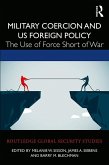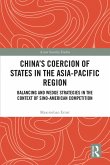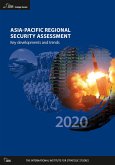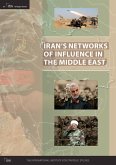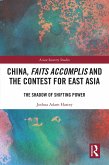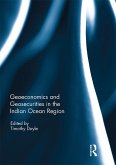China's coercion of neighboring states, often a variation of heavy informal economic sanctions combined with diplomatic pressure and gray-zone coercive measures, has been increasingly observable in the past decade. It has become an important tool in China's foreign policy toolbox and is frequently used by Beijing to shape the security-political environment of the Asia-Pacific. The book begins with an appreciation of China's complicated geopolitical exposition and an understanding that such coercion creates backlash, since the target state will likely be alienated and pushed into closer security cooperation with the United States, China's main geopolitical rival. Through two in-depth case studies of Chinese coercion, targeting the Philippines and South Korea, respectively, the book demonstrates that, first, the reason China coerces is that the secondary state engages in actions that fundamentally threaten China's security interests, and, second, it will coerce these states only if other policy options geared to change the secondary state's course of action have not worked. Employing balance-of-power theory, and particularly wedge strategies, the book solves a pertinent research question and improves our knowledge of contemporary security politics in the Asia-Pacific.
This book will be of interest to students, scholars and practitioners of Asia-Pacific security, Chinese foreign policy, and international relations.
Dieser Download kann aus rechtlichen Gründen nur mit Rechnungsadresse in A, B, BG, CY, CZ, D, DK, EW, E, FIN, F, GR, HR, H, IRL, I, LT, L, LR, M, NL, PL, P, R, S, SLO, SK ausgeliefert werden.



